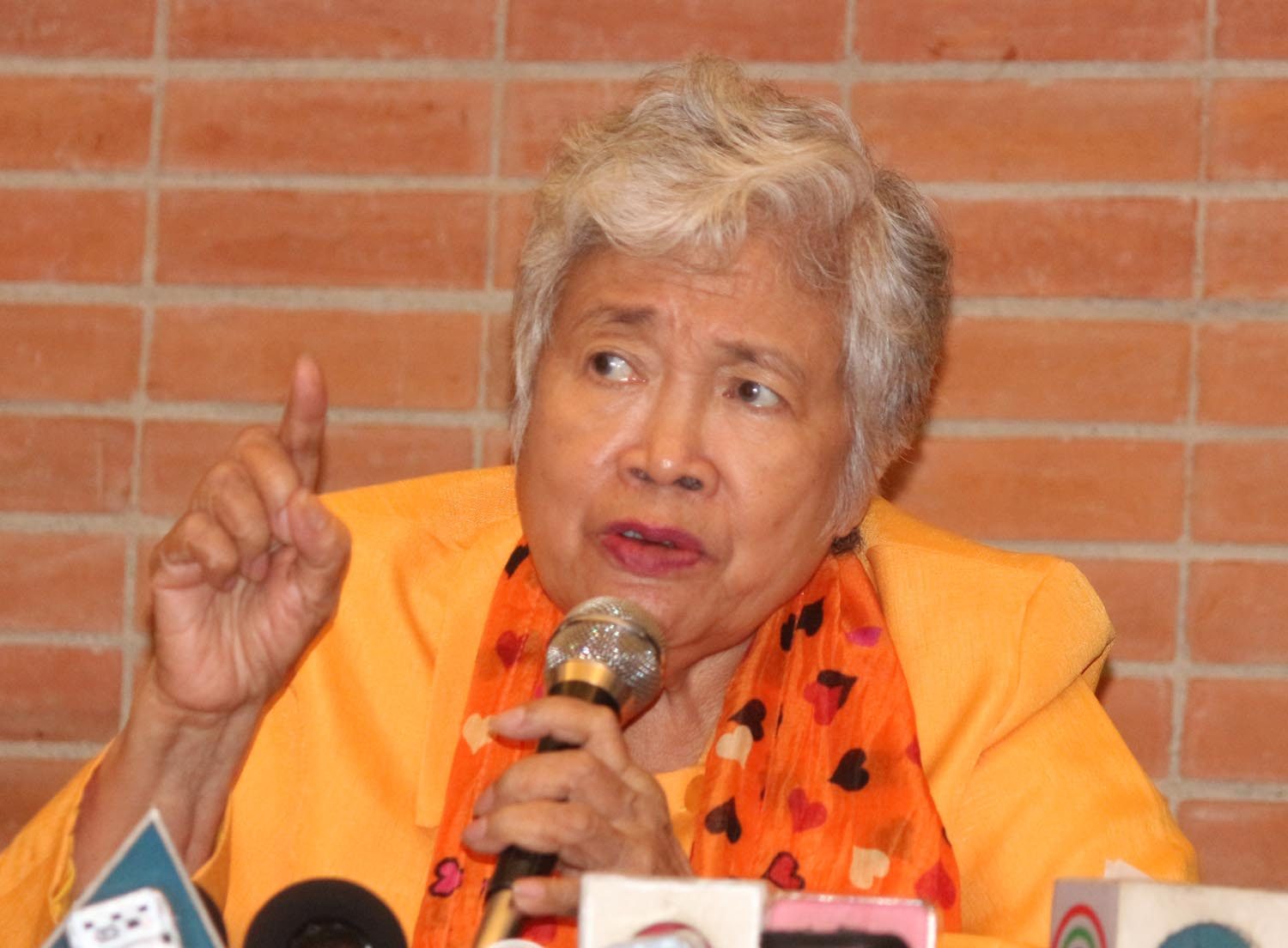SUMMARY
This is AI generated summarization, which may have errors. For context, always refer to the full article.

MANILA, Philippines – At 75 years old, Leonor Briones is ready for her 3rd time as Cabinet secretary.
She has accepted President-elect Rodrigo Duterte’s offer to lead the Department of Education (DepEd) – and at a crucial time at that, since the department is set to fully implement this year its biggest education reform in recent years: the K to 12 program.
After her first press conference as incoming education secretary on Monday, June 6, Briones was asked about the kind of leadership Filipinos can expect from her, considering DepEd’s huge bureaucracy that involves a lot of personnel, including teachers.
“I’m known only for one kind of leadership wherever I am…I’ve always been consultative,” the lead convenor of Social Watch Philippines told reporters.
Duterte announced on May 28 that he had chosen Briones to head DepEd. His first choice, Lyceum of the Philippines president Peter Laurel, declined the post.
Three days later, on May 31, Briones flew to Davao City and met Duterte for the first time. (READ: Duterte’s education concerns: Out-of-school youth, displaced teachers)
“I did not apply for the position as secretary of education. President-elect Duterte and I have never met each other until the presentation which was made in Davao, when he announced the Cabinet appointments. I am therefore grateful to President-elect Duterte for convincing and selecting me as an incoming secretary of education despite of the fact that he had never seen me at all,” Briones said during her press conference on Monday.
Before she was offered the post, Briones had repeatedly called for the current education secretary, Armin Luistro, to be retained in the department “so he can shepherd the ongoing implementation of K to 12 to its successful conclusion.”
But she accepted the offer after consulting with her family and other groups she is associated with.
“I have accepted the nomination and election not for my own sake, because I don’t need another Cabinet position. This would be my 3rd time to be secretary: first with the Commission on Audit, and then as national treasurer of the Philippines,” she said.
“But it is an opportunity – and this has been pointed out to me repeatedly, especially by the Social Watch and my friends from civil society – and a tremendous challenge for all who believe in education…. It’s not only a sustainable development goal. It’s not only an international goal. It is part of our culture.”
“A parent – whether a peasant or a fisherman or a carpenter or a jeepney driver – always wants his child to be educated, to do better than himself. So it’s an opportunity,” Briones said.
Advocacy
On Monday, Briones also talked about growing up surrounded by a family of teachers, from her parents down to her grandchildren.
“During the war years…I learned how to write on banana leaves as paper and sharpened bamboo sticks as pencils from my mother, who was a teacher. I have lived through the travails of teachers: low pay, long hours, big debts, and physical difficulties,” she shared.
“As an elementary school pupil in a public school, I have experienced walking long distances to and from school. I sat in stifling, overcrowded class rooms…and endured hunger and thirst even as I struggled to learn. I learned to read and write at the age of 4 years old.”
Education has been at the forefront of Briones’ advocacies. As president of Freedom From Debt Coalition, she led a campaign to reduce the country’s debt burden in order to put more resources in education and social development.
Social Watch Philippines’ Alternative Budget Initiative, meanwhile, has pushed for higher budget allocations for education.
On Monday, Briones said it’s not enough to simply comply with the Constitution and assign the highest budgetary priority to education.
For her, the goal is to meet the international standards that require at least 6% of the GDP to be allocated for education. But this is a long way to go, Briones lamented, considering that government is spending only 3% of its GDP on education.
“[The budget for education] must be sufficient and responsive to needs,” she said. – Rappler.com
Add a comment
How does this make you feel?
There are no comments yet. Add your comment to start the conversation.